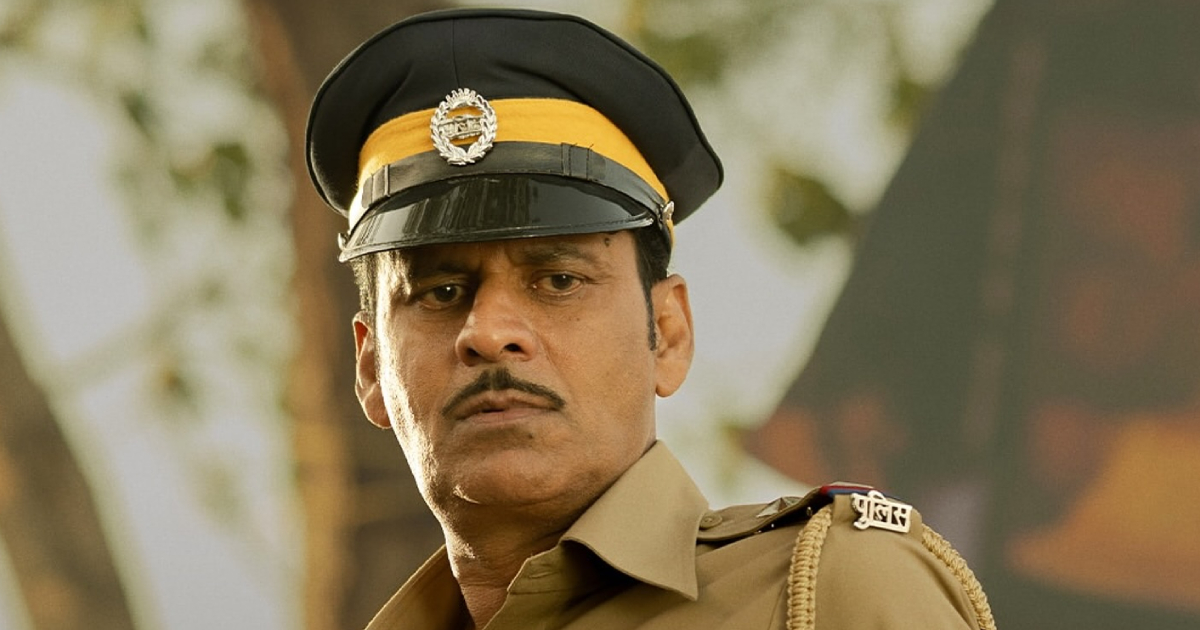
Netflix’s Inspector Zende is a refreshing entry into the true-crime genre, blending suspense, humor, and nostalgia to tell the story of one of India’s most underrated law enforcement heroes. Directed by Chinmay D. Mandlekar, the film dramatizes the real-life exploits of Inspector Madhukar Zende, the Mumbai cop who famously apprehended serial killer Charles Sobhraj not once, but twice. With Manoj Bajpayee in the titular role and Jim Sarbh playing the slippery antagonist Carl Bhojraj (a fictionalized version of Sobhraj), the film offers a quirky, heartfelt take on a legendary manhunt.
Set against the backdrop of 1970s and 1980s India, Inspector Zende is not your typical gritty crime thriller. Instead, it leans into a comic-thriller tone, using observational humor and eccentric characters to bring levity to a story rooted in real danger. The result is a film that feels both entertaining and emotionally resonant, with enough charm to appeal to a wide audience.
A Hero Worth Celebrating
At the heart of the film is Inspector Zende, portrayed with understated brilliance by Manoj Bajpayee. Zende is not a swaggering action hero, but a grounded, street-smart cop who relies on instinct, persistence, and a deep understanding of human behavior. Bajpayee brings warmth and wit to the role, channeling shades of his Family Man character while crafting a distinctly new persona. His portrayal is layered—equal parts determined officer, devoted husband, and reluctant public figure.
The film opens with Carl Bhojraj’s dramatic escape from Tihar Jail, where he drugs the prison staff with sleeping pills hidden in birthday kheer. From there, the chase begins, as Zende is tasked with tracking down the fugitive across cities and states. What follows is a cat-and-mouse game filled with clever twists, bureaucratic hurdles, and moments of unexpected comedy.
Jim Sarbh’s Slippery Antagonist
Jim Sarbh plays Carl Bhojraj with a mix of charm and menace. His character is flamboyant, manipulative, and always one step ahead—until he isn’t. Sarbh’s ability to switch accents and moods adds depth to a role that could have easily veered into caricature. While the writing doesn’t fully explore Bhojraj’s psyche, Sarbh makes the most of his screen time, creating a memorable foil to Bajpayee’s Zende.
The dynamic between the two leads is cerebral rather than physical. Their confrontations are built on psychological tension, with Zende’s quiet resolve clashing against Bhojraj’s theatrical bravado. It’s a refreshing departure from the usual cop-villain showdowns, and one that keeps viewers engaged throughout.
Supporting Cast and Comic Relief
The supporting cast adds texture and humor to the narrative. Sachin Khedekar plays Zende’s superior, a man caught between political pressure and moral duty. Girija Oak brings emotional grounding as Zende’s wife, whose quiet prayers and unwavering support add a personal dimension to the story. Bhalchandra Kadam and Vaibhav Mangale, as Zende’s fellow officers, inject comic relief with their quirky personalities and offbeat banter.
These characters help balance the film’s tone, ensuring that the tension never becomes overwhelming. The camaraderie among the police team feels authentic, and their interactions provide some of the film’s most endearing moments.
A Nostalgic Setting with Sharp Details
One of Inspector Zende’s strengths is its period setting. The film recreates 70s and 80s Mumbai with striking detail—from retro cars and fashion to the bustling streets and analog crime-solving methods. The absence of modern technology adds to the suspense, highlighting the ingenuity required to track a criminal in a pre-digital era.
Director Chinmay Mandlekar deserves credit for crafting a world that feels lived-in and authentic. The cinematography captures both the grit and charm of old Bombay, while the music and production design evoke a sense of nostalgia without being overly sentimental.
Genre Fluidity and Emotional Resonance
What sets Inspector Zende apart from other true-crime films is its genre fluidity. It seamlessly blends crime, comedy, and drama, creating a narrative that is both thrilling and heartwarming. The film doesn’t shy away from the gravity of Sobhraj’s crimes, but it chooses to focus on the resilience and humanity of the man who caught him.
Zende’s journey is portrayed not as a tale of brute force, but as one of quiet determination. His methods are unconventional, his team is underfunded, and his challenges are many—but his commitment to justice never wavers. This emotional core gives the film its staying power, making it more than just a procedural.
Where It Stumbles
Despite its strengths, Inspector Zende is not without flaws. The pacing dips in the second half, with some scenes feeling repetitive. The chase, while engaging, occasionally loses momentum, and the narrative could have benefited from tighter editing. Additionally, the film’s humor, while generally effective, sometimes veers into slapstick territory, which may not appeal to all viewers.
The semi-fictionalization of Sobhraj as Carl Bhojraj also feels like a missed opportunity. While legal constraints may have necessitated the name change, the character’s depth suffers as a result. A more nuanced exploration of Bhojraj’s psychology could have elevated the stakes and added complexity to the story.
Final Verdict
Inspector Zende is a spirited tribute to an unsung hero, brought to life by a stellar cast and a director who understands the value of storytelling with heart. Manoj Bajpayee anchors the film with a performance that is both entertaining and deeply human, while Jim Sarbh adds flair as the elusive antagonist. The film’s blend of humor, suspense, and nostalgia makes it a compelling watch, especially for fans of character-driven crime dramas.
It may not be a flawless thriller, but it’s a film that knows what it wants to be—and delivers with sincerity. In celebrating Madhukar Zende’s legacy, it reminds us that heroism often lies not in grand gestures, but in quiet persistence. And in a genre often dominated by darkness, Inspector Zende offers a welcome dose of light.


Leave a Reply